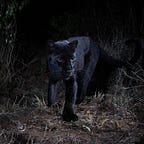Rare Animals You Probably Haven’t Heard Of , Pt.1-Okapi
What is an okapi
Although okapis are often seen as a mix of a deer and a zebra, their closest and only relation is actually to the giraffe, hence the their nickname “forest giraffe”. The okapi is native to the Ituri rainforest in the Democratic Republic of Congo — the only place where it can be found in the wild — and has thick, oily fur to stay dry in the rain. It also has scent glands on the bottom of its hooves that help mark its territory. Except for the tips, the okapi’s short horns are covered in skin. While all males have horns, most females have knobby bumps instead.
Factfile — in only 3 sentences
The scientific name for okapis, which are mammals, is okapia johnstoni. They are all herbivores and live for approximately 30 years, reaching up to 5 feet high and 8 feet long during that time as well as accumulating a weight of between 440–660 pounds. The IUCN has listed their species as endangered with an estimate of only 15000 left in the wild.
Threats to survival
Though the leopard is the okapi’s chief predator in the wild, human hunters pose a greater threat to the okapi’s existence. In 2012, a militia killed 14 okapis at a conservation centre located at the headquarters of the Okapi Conservation Project. Today, poachers continue to kill okapis for their meat and skin, and civil unrest in the Democratic Republic of Congo makes enforcement of wildlife protection laws increasingly difficult. Human-induced deforestation also leads to fragmentation and destruction of crucial okapi habitats.
Conservation
Founded in 1987, the Okapi Conservation Project still exists, despite the brutal attack on its headquarters in 2012. It supports the Okapi Wildlife Reserve, a World Heritage Site in the Itiru Forest, home to 5,000 okapis. The Okapi Conservation Project works with the Institute in Congo for the Conservation of Nature to provide resources to rangers who patrol the reserve and other okapi-occupied areas. The rangers’ duties include detaining armed poachers before they can kill okapis and monitoring agricultural expansion that could harm okapi habitats. IUCN has also teamed up with other organisations, including the Zoological Society of London, to implement a decade-long strategy to reduce illegal activity that could drive the okapi to extinction.
With thanks to the IUCN, National Geographic, and Unseenwonders for some of the data provided.
